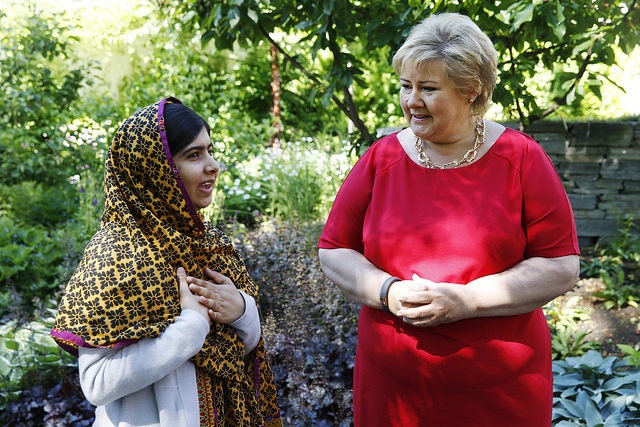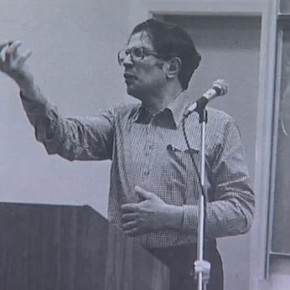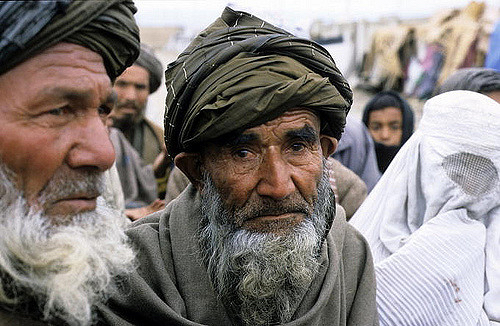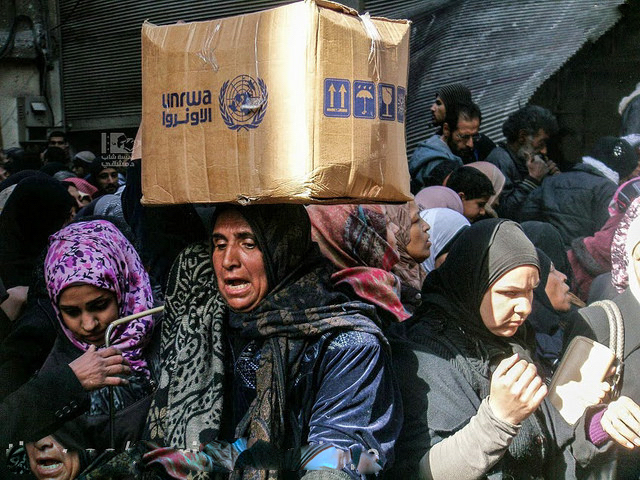Malala Yousafzai is making news again, after urging world leaders to cut “eight days of military spending” in order to fund education. On Tuesday, the Malala Fund announced an estimate that $39 billion would be needed yearly to fund primary and secondary education for children worldwide.
The fact that Yousafzai was speaking at a United Nations education summit in Oslo, a month after meeting with World Bank President Jim Yong Kim, once again illuminates the fact that the teenage laureate has been found her own niche in the Western establishment.
Scholars like Saadia Toor have written extensively on how Yousafzai continues to interact with pro-market advocates worldwide, and has been cited repeatedly by security hawks who advocate violence against Pakistani religious militants. This has been particularly troubling in Pakistan itself, with a military-aligned secular liberal elite praising Yousafzai as proof of the Pakistani War on Terror’s fundamentally progressive character, despite its horrific social and political consequences.
Interestingly, these interpretations of Yousafzai are at odds with the reality of her own positions. The Malala that is most frequently discussed is the one that, in June 2013, stated before the United Nations, “let us pick up our books and our pens, they are the most powerful weapons. One child, one teacher, one book and one pen, can change the world. Education is the only solution.”
It makes sense that Western liberals would applaud these words, since they insist on the power of “ones”: one child, one teacher, one pen. Liberalism is predicated on individualism. Social dysfunction is best resolved by personal initiative, rather than confronted by entire communities, or mass movements.
Statements like “education is the only solution” play an important role in such a worldview. They effectively separate a social issue like “education” from wider economic processes, instead relegating it to a purely humanitarian plane that can be met with goodwill instead of structural change. Indeed, Yousafzai’s speech was delivered to acclaim because a feverish desire to fawn over the power of “one child, one teacher, one pen” overruled any realistic assessment of the problems underpinning Pakistan’s education crisis.
For instance, when education is the “only solution,” there is little need to tackle the fact that educational dysfunctions are difficult to overcome when 51% of Pakistanis were living on less than $2.00/day in 2010 (at 2005 international prices). Illiteracy helps stabilize feudalistic power dynamics in rural areas, as well as labor exploitation more broadly. There are also various other issues, such as the fact that General Zia ul-Haq forcibly implemented a severely regressive theocratic framework that explicitly pushed against women accessing services like education.

The point is that if emancipation were simply a matter of buying more textbooks, then Pakistan wouldn’t have posted an adult literacy rate of 54.9% in 2012, after decades of humanitarian assistance and NGO work. Yousafzai is popular because she doesn’t make these arguments to her liberal allies, instead encouraging them to continue throwing money and talent at abstract categories like “education” without much reflection. She gives them permission, whether in the United Nations or in Islamabad, to ignore that their strategies for developing Pakistan out of its educational problems are doomed to fail if they do not substantively tackle their socioeconomic roots.
Cynicism about Yousafzai is tempting, but it would also mean overlooking her leftist politics, which have not been sufficiently discussed. During her speech to the United Nations, she emphasized the importance of “the philosophy of nonviolence,” which she “learned from Gandhi, Bacha Khan and Mother Theresa.” While mainstream outlets fawned over her references to Gandhi and Mother Theresa, two figures who are popular mainly because our memory of them is essentially apolitical, they ignored her praise of Bacha Khan, an extremely important Pashtun anarcho-pacifist.
This was in part because of Khan’s relative obscurity among many of Yousafzai’s audiences, including in Pakistan, but also because her political views have been erased in the popular imagination. Many readers would be surprised to learn that in March 2013, Yousafzai sent a message to the 32nd Congress of the International Marxist Tendency in Pakistan, in which she wrote:
I just want to say that in terms of education, as well as other problems in Pakistan, it is high time that we did something to tackle them ourselves. It’s important to take the initiative. We cannot wait around for any one else to come and do it. Why are we waiting for someone else to come and fix things? Why aren’t we doing it ourselves?
I would like to send my heartfelt greetings to the congress. I am convinced Socialism is the only answer and I urge all comrades to take this struggle to a victorious conclusion. Only this will free us from the chains of bigotry and exploitation.
This tone is consistent with the ideological commitments of The Struggle, and the IMT, both of which lean Trotskyist. Important is the fact that it proves quite decisively that Yousafzai is a far more complicated figure than the “liberal Malala” who has been speaking to the United Nations, and helps soothe the consciences of her market-driven and development-minded audiences.
Indeed, Yousafzai has been consciously neutralized, and quarantined from statements like “Socialism is the only answer.” This is additionally bizarre when we recall that Yousafzai has partially been touted as a success story for liberal feminism, especially in Pakistan. The liberal Malala is one that has been implicitly affirming the power of Western-backed women in the face of the Taliban, and yet, Yousafzai is still not in control over her own platform and message. Instead, she is is forced to surrender her agency when it comes to uncomfortable political questions such as economic governance in Pakistan. Global elites have mostly been constructing our idea of her for her, which is hardly empowering to witness.
There is an inevitable collision course here. The two sides of Malala Yousafzai, which caters to the dreams and fantasies of the international community, and which is also part of a growing anti-Taliban and anti-military movement in Northwestern Pakistan, may become irreconcilable. This will be especially the case if Yousafzai, who is attracted to entities as diverse as Bacha Khan and the IMT, falls out of favor with her liberal backers, because issues like education demand far more elaborate change than they will support. Either that, or the liberal Malala takes the lead, and “Red Malala” becomes an obscure historical footnote.
Photographs courtesy of Statsministeren kontor and Nada Cucakalovic. Published under a Creative Commons License.





